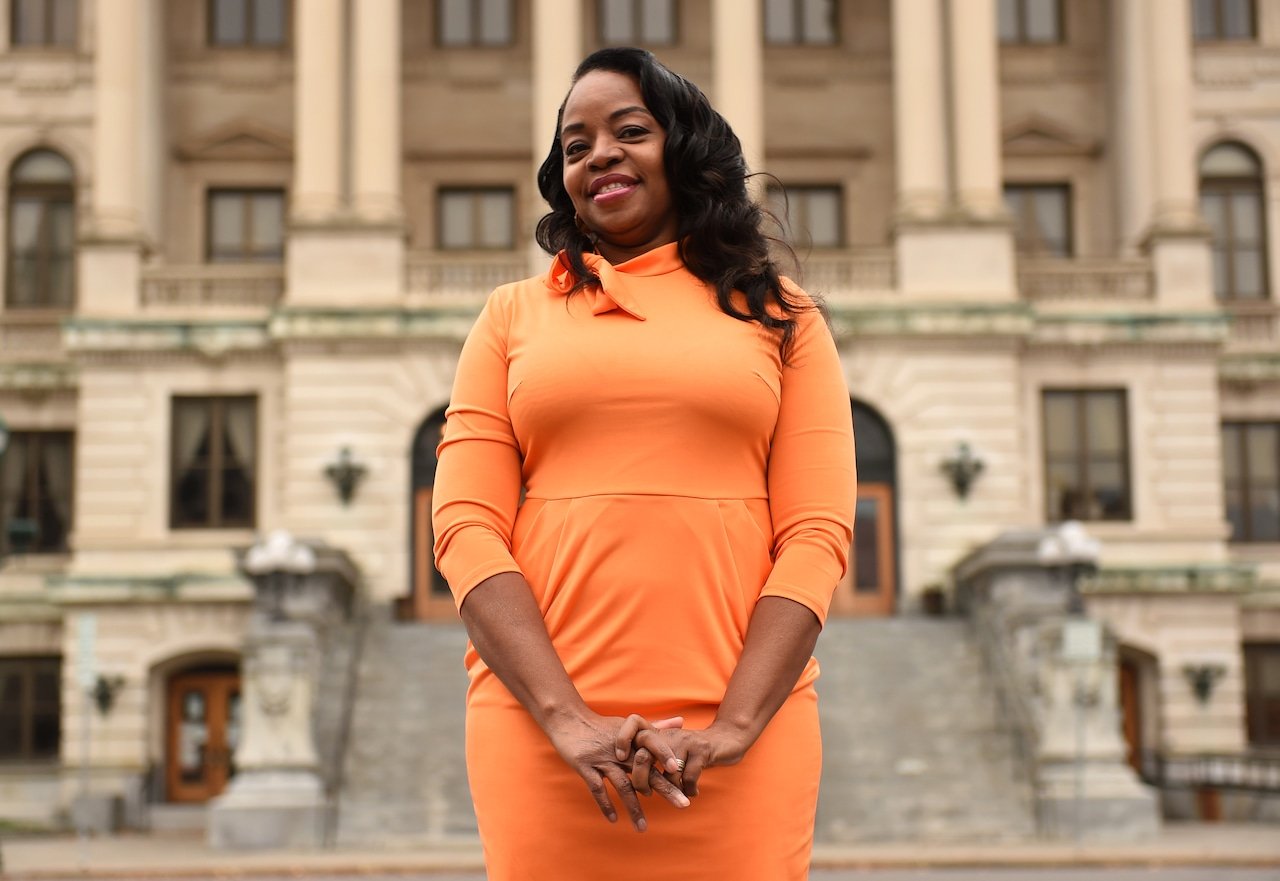Summary
Syracuse City Court Judge Felicia Pitts Davis refused to officiate a same-sex wedding, citing religious beliefs.
Another judge, Mary Anne Doherty, performed the ceremony.
Pitts Davis’ actions, considered discriminatory under New York judicial ethics and the Marriage Equality Act, are under review by the State Commission on Judicial Conduct



The I believe in this case she had no good excuse not to act as a witness and sign the paperwork, since it seems that’s all thats required, and she has no responsibility to perform any actual ceremony.
I still believe no judge or person should be required to perform or create anything they don’t want to.
Shouldn’t public servants have to serve the public? All of the public?
If you don’t feel like you can serve the public, do not seek a public service position.
Others have pointed this out to you already, though. 🤷♂️
Agreed. As I originally stated if it was as simple as signing a bit of paperwork (which in this case seems to be all that required) there’s no excuse.
Look, we’re talking past each other.
I don’t believe that any judge or person in general should be forced to perform a ceremony of a different religion or belief system. I agree with you on that point, because full ceremonies are indeed performances with a lot of layered, cultural meanings.
The issue here is you are then taking that and asserting that any proceeding that is more involved than signing a piece of paper is, in fact, a ceremony. This is where we differ, and I’ll tell you why: by that definition, signing the paper is ceremonial.
Yes, it does record a real world event. But that is a ceremony that we have culturally come to accept after a long history of doing it. We could have come up with many other types of ceremonies to confirm a contract - it could have been a wax seal, or using a broke stick like stocks originally were. Anything can fit the definition of ceremony if you squint hard enough.
So, what’s a reasonable place for us to draw the line? I would argue that the current status quo is not particularly religious or meaningful outside of the contract.
The officiant confirms that both parties understand what is happening, that this is a contract that will legally bind them together. It’s very serious. Be very sure.
Then, they announce that the couple is officially wed, and they sign the document.
Last, they usually say “you may kiss” or something to that effect.
The most objectionable thing here is the final statement, but even that is hardly objectionable. It is a statement of fact and does not imply any level of endorsement beyond confirming that the deed is done.
This is a very, very small formality. There are courtroom procedures that are more lengthy and involved than this regularly. But you are pushing to say this counts as a ceremony, because if it does, then the judge doesn’t have to do this and she’s in the right.
I just don’t buy it. The only part of that which can be called remotely ceremonial is the statement about kissing, and honestly if the judge refused to say that in the end I would not care. But every other part is a reasonable procedure to make sure both parties understand the stakes, are not being coerced, etc.
Someone else gave a link, that basically described they really only need act as a witness to vows, then sign the form. They don’t even need to say anything. Since that’s all that’s required, I can’t see any reasonable cause for her to refuse in this case.
But the ceremony doesn’t even matter. Any speach at any event you disagree with, it should be your right to decline.
Ok, let’s continue to focus on this technicality then.
Let’s say that’s true, and that anything other than witnessing the vows and signing the form is “ceremonial” and covered under freedom of speech. (Forget the part where you need to, you know, prompt each party for their vows. Not like you just sit there, stone cold, and they walk up and start talking to each other. But anyways.) The role of public servants is to be impartial and provide a common good or service to all citizens. And for a judge especially, this is extremely important. If a judge shows signs of bias, it could call into question the ways that they interpret the law. Did they also make biased judgements? Did they interpret laws to target certain classes of people, when they could get away with it?
So, if all of that is speech, then I propose that judges should be required to perform the same procedure for all couples when they are doing so as a service in a court. If they say “kiss the bride” to one couple, they have to say “kiss the ___” to all of them. That’s fair, prevents judges from seeming biased and prevents the institution from seeming biased, and allows judges to decide what they want to do as part of the proceedings. They can each have their own flair, or just do the basic witness + signing.
Would that be acceptable, in your view?